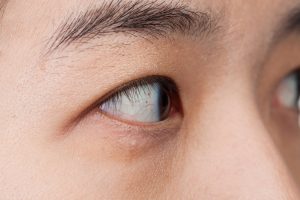Many seek natural alternatives to traditional medications for mental well-being in today’s fast-paced world. The side effects of antidepressant drugs like Wellbutrin leave some patients longing for a more natural approach to mental well-being management. This article explores effective natural alternatives to Wellbutrin that may offer relief and support in managing mental well-being concerns.
In recent years, there has been a growing interest in exploring natural substitutes to Wellbutrin for mental well-being.
While medications like Wellbutrin can effectively treat depression and anxiety disorders, they often come with side effects that some patients find difficult to tolerate—leading to a search for more natural approaches that prioritize their well-being and minimize unwanted consequences.
From herbal supplements and aromatherapy to mindfulness practices and exercise routines, some alternatives offer a range of options that may help manage mental health concerns without relying solely on pharmaceutical medications.
They provide individuals with an empowered choice in their healing journey by offering gentler solutions rooted in compassion towards themselves and their bodies.
Additionally, natural alternatives often address the root causes of mental health conditions rather than just alleviating symptoms.
By adding lifestyle changes such as proper nutrition, regular exercise, reducing stress levels, improving sleep patterns, and engaging in self-care activities, patients can cultivate a balanced approach to their well-being.
By embracing alternative therapies rooted in nature’s bounty and adopting compassionate practices towards oneself, patients can find relief while working towards long-term psychological resilience – all without compromising their values or experiencing detrimental side effects commonly associated with traditional medications like Wellbutrin.
Overview of Wellbutrin and its common uses
Wellbutrin, bupropion, is a commonly prescribed medication for treating depression and anxiety disorders. It belongs to the class of drugs called atypical antidepressants and works by restoring the balance of certain neurotransmitters in the brain responsible for mood stabilization.
It can help improve mood, reduce feelings of sadness or hopelessness, increase energy levels, and enhance concentration and focus. This medication can also be effective for weight loss.
However, some individuals may seek natural alternatives to Wellbutrin due to concerns about potential side effects or a desire for a more holistic approach to their mental well-being.
Understanding Wellbutrin and its Limitations
Understanding Wellbutrin and its limitations is essential for people seeking natural options to traditional medications for mental well-being.
Wellbutrin, or bupropion, is commonly prescribed to treat depression and anxiety disorders. It is also prescribed for seasonal affective disorder.
While it can effectively manage major depression symptoms for some patients, its effects are not universal and may leave others longing for a more holistic and less detrimental approach.
It is essential to recognize that Wellbutrin has certain limitations. Firstly, it may only work effectively for some or produce the desired results.
Each individual’s brain chemistry and mental condition are unique, making different treatment options necessary for each person.
Additionally, like any medication, there can be potential side effects associated with taking Wellbutrin.
Potential side effects and contraindications
While natural remedies can relieve some individuals, it is crucial to consider that they may still have side effects and contraindications.
Some natural alternatives to Wellbutrin, such as St. Johns Wort or 5-HTP, are effective in managing symptoms of depression and anxiety. However, these alternatives may not be suitable for everyone.
St. John’s Wort, for example, can interact with certain medications and result in adverse reactions. It is also important to note that natural remedies may take longer to show significant results compared to pharmaceutical drugs.
People considering natural antidepressants should consult a healthcare expert before making any changes or additions to their treatment plan.
While exploring effective natural options for Wellbutrin is an essential step toward holistic mental well-being management, it is necessary to have open discussions about potential adverse effects and contraindications associated with these alternative therapies.
Read also: How to Get Wellbutrin Prescription Online
Overview: Natural Alternatives to Wellbutrin
In the realm of natural options to Wellbutrin, several options have emerged with promising results. One such alternative is St. John’s Wort, a herb that has been used for centuries to relieve symptoms of mild to moderate depression.
Studies suggest that St. John’s Wort may work similarly to Wellbutrin by balancing brain serotonin, dopamine, and norepinephrine levels.
Another natural option is S-Adenosylmethionine (SAMe), a naturally secreted compound in the body that plays a crucial role in various biochemical reactions like breaking down serotonin, melatonin, and dopamine.
Research suggests that SAMe may benefit individuals struggling with depression and anxiety disorders, as it helps regulate mood and improve neurotransmitter function.
It’s important to note that while natural options can be effective for some, they may not work for everyone or could interact with other medications or existing health conditions.
Therefore, it is wise to consult with a healthcare professional before changing your treatment plan or starting any new natural remedies.
Natural Alternatives to Wellbutrin
In the search for natural alternatives to pharmaceutical medications, many people have turned to various approaches rooted in nature’s resources to support their mental well-being.
These alternative therapies offer a more holistic approach by considering the interconnectedness of mind, body, and environment.
One popular natural approach is herbal medicine, which utilizes plant extracts and botanical remedies to address mental well-being concerns.
Adaptogenic herbs such as ashwagandha or Rhodiola rosea may help regulate stress response and improve overall well-being.
Another natural approach gaining recognition is mindfulness-based practices like meditation or yoga.
These techniques encourage individuals to be fully present at the moment while cultivating self-awareness and acceptance of emotions without judgment.
Studies indicate the regular practice of mindfulness can reduce symptoms of depression and anxiety while enhancing emotional resilience.
By exploring these effective natural alternatives to Wellbutrin, individuals can find relief from mental well-being challenges through methods that align with their compassionate values towards themselves and nature’s healing abilities.
Lifestyle Changes and Self-Care Practices
Lifestyle changes can play a significant part in boosting mental well-being. Incorporating self-care practices into daily routines can give individuals a sense of balance and improve overall quality of life.
Practicing stress management techniques like meditation or yoga, regular exercising, maintaining a healthy diet, and getting sufficient sleep are all lifestyle changes that can positively impact mental well-being.
These practices promote the release of endorphins, hormones that help regulate mood and reduce feelings of anxiety and depression.
Self-care practices also involve nurturing oneself on an emotional level. Taking time for hobbies or activities one enjoys, spending time with family and lovers, engaging in creative outlets, or seeking therapy or counseling are important aspects of self-care.
People may better manage their mental well-being concerns by prioritizing personal needs and making conscious choices to care for themselves mentally and emotionally.
Importance of healthy lifestyle habits for mental well-being
Maintaining a healthy lifestyle is of critical importance to boosting mental well-being. Healthy habits can profoundly affect one’s mental well-being.
Exercise, for instance, releases endorphins – the feel-good chemicals in the brain that help alleviate symptoms of anxiety and depression.
Diet compositions rich in whole grains, fruits, vegetables, and lean proteins also significantly support mental well-being.
Certain nutrients found in these foods are essential for maintaining optimal brain function and improving mood.
Additionally, practicing good sleeping habits can improve cognitive abilities and reduce feelings of stress or irritability.
Critical lifestyle choices promote better physical health and support a more positive mindset by reducing symptoms associated with common mental disorders.
Infusing these habits into a daily routine can go a long way towards achieving holistic well-being and potentially serve as effective alternatives to medications like Wellbutrin.

Specific lifestyle changes that can support mental well-being
Making specific lifestyle alterations can have a significant positive impact on a patient’s mental well-being. One crucial change is incorporating regular exercise into daily routines.
Exercise releases endorphins, which are natural mood-lifters and stress-relievers.
Activities such as walking, jogging, or yoga help keep the body physically fit and promote mental well-being by mitigating symptoms of depression and anxiety. These activities can also lead to weight loss for a healthy balance.
Another lifestyle change that supports mental well-being is adopting a healthy sleep routine. Sufficient and quality sleep is crucial for sustaining good mental well-being.
The following are some practical tips to help you get enough sleep.
Establishing a consistent sleep schedule,
Avoiding electronic devices before bedtime,
Creating a relaxing bedtime routine, and
Ensuring a comfortable sleeping environment
Getting adequate rest allows the brain to recharge and function optimally, improving cognitive abilities and emotional stability.
Lastly, nurturing social connections can significantly contribute to mental well-being. Spending time with loved ones and family and engaging in meaningful conversations or shared activities strengthens relationships and provides support during difficult times.
Joining community groups or finding hobbies that involve interacting with others can help combat feelings of loneliness or isolation that often accompany mental disorders.
By implementing these lifestyle changes and seeking professional guidance, individuals can take proactive steps towards maintaining their mental well-being naturally while supporting their holistic approach to healing and recovery from depression or anxiety disorders.
It is important to note that individuals experience depression differently, and what works for one person might not work for another.
Talking to a healthcare expert before starting any new treatment or making significant lifestyle changes is crucial to ensure safety and efficacy when exploring natural substitutes for medications like Wellbutrin.
Read also: Does Wellbutrin Suppress Appetite?
Dietary Modifications and Supplements
Dietary modifications and supplements can significantly support mental well-being, offering natural substitutes for traditional medications like Wellbutrin.
A balanced diet rich in whole foods, such as fruits, vegetables, lean proteins, and healthy fats, provides essential nutrients supporting brain function and emotional well-being.
Omega-3 fatty acids have antidepressant qualities that can be an alternative to Wellbutrin. Omega-3 fatty acids are found in fish oil supplements.
Moreover, herbal supplements like St. John’s Wort have gained popularity for their mood-enhancing properties.
This natural remedy has been used for centuries to alleviate symptoms of depression by boosting the brain’s production of serotonin—a neurotransmitter responsible for regulating emotions.
Additionally, adaptogenic herbs like ashwagandha and Rhodiola-Rosea promise to reduce stress levels while promoting a calm state of mind.
While dietary modifications and supplement use may offer relief from mental well-being concerns similar to Wellbutrin without the potential side effects of pharmaceuticals; however it is critical to talk to a healthcare expert before embarking on any drastic changes or introducing new supplements into your routine.
They can provide personalized guidance based on your specific needs and ensure you make safe decisions regarding your mental well-being.
Herbal Remedies and Adaptogens
Herbal remedies and adaptogens are two powerful approaches in the world of natural alternatives for mental well-being.
Made from various plants and their extracts, herbal remedies have been used for centuries to support overall well-being and alleviate symptoms of depression and anxiety.
These remedies often include ingredients like
- St. John’s Wort
- Lavender
- Chamomile
- Passionflower.
Adaptogens are a specific class of herbs that help the body adapt to stressors and restore balance. They support the hypothalamic-pituitary-adrenal (HPA) axis – our body’s central stress response system.
Some common adaptogens include the following:
- Ashwagandha
- Rhodiola-Rosea
- Holy basil (tulsi)
- Ginseng.
Combining herbal remedies with adaptogenic herbs can offer a comprehensive approach to managing mental well-being concerns without reliance on traditional medications like Wellbutrin.
Examples of herbs and adaptogens known for their calming or mood-enhancing properties
Regarding natural alternatives for managing mental well-being, herbs, and adaptogens have gained recognition for their calming and mood-enhancing properties.
One example is chamomile, which has long been used as a relaxing tea due to its ability to soothe the nervous system. Chamomile contains compounds that bind to specific receptors in the brain, promoting relaxation and reducing anxiety.
Another herb known for its mood-enhancing properties is St. John’s Wort. It has been widely studied for its effectiveness in treating mild-to-moderate depression.
This herb works by increasing serotonin, dopamine, and norepinephrine levels in the brain – neurotransmitters associated with improved mood and reduced feelings of sadness or hopelessness.
Adaptogens like ashwagandha are also gaining popularity for their stress-reducing effects. Ashwagandha helps regulate cortisol levels (the stress hormone) in the body, improving overall well-being and emotional balance.
Incorporating these herbs into one’s daily routine through teas, tinctures, or supplements can provide a more holistic approach toward mental well-being support while avoiding potential side effects often associated with traditional medications like Wellbutrin.
Mind-Body Practices
Mind-body practices, such as yoga, meditation, and tai chi, offer promising natural alternatives to traditional medications like Wellbutrin.
These practices recognize the interconnectedness of the mind and body and focus on enhancing that connection to promote overall well-being.
By incorporating gentle movements, focused breathing techniques, and mindfulness exercises into daily routines, individuals can experience reduced symptoms of depression and anxiety.
Yoga is a widespread mind-body practice that combines physical postures with breath control and meditation. It has been found to decrease stress hormones in the body while increasing feelings of calmness and relaxation.
Regular yoga practice also improves sleep patterns, boosts mood-enhancing neurotransmitters like serotonin in the brain, and cultivates a sense of self-awareness.
Another effective mind-body practice is meditation. Research suggests that consistent meditation can help alleviate symptoms of depression by reducing negative thoughts and promoting emotional resilience.
Individuals learn to manage their emotions more effectively through conscious awareness of thoughts without judgment or attachment.
Tai chi is another powerful mind-body practice known for its slow-flowing movements and deep breathing exercises. This ancient Chinese martial art has been shown to reduce anxiety levels while improving flexibility, balance, focus, and general well-being.
By exploring these natural alternatives rooted in nature’s bounty – yoga, mindfulness, and tai chi – individuals longing for a holistic approach can find potential relief from mental well-being concerns through compassionate self-care methods aligned with their values.
The benefits extend beyond symptom management as these practices empower individuals by emphasizing self-awareness, a nurturing connection between them and their bodies, and an opportunity for spiritual growth.
In conclusion, drawing attention towards embracing Mind-Body Practices can lead patients closer to progressively spreading wellness effectively, naturally breaking free of some needed medicating tendencies within utilizing pharmaceutical prescriptions such as antidepressants, much like Welbutrin.
Yoga and meditation
Meditation involves focusing one’s thoughts and achieving a state of calmness and clarity. It has been shown to reduce stress levels, improve concentration, enhance self-awareness, and promote emotional well-being.
Yoga combines physical postures with breath control techniques and meditation to create a mind-body connection. This ancient practice helps increase strength and flexibility, reduces anxiety symptoms, alleviates depression, improves sleep quality, and promotes overall mental wellness.
Mindfulness refers to paying attention to the present moment without judgment. By cultivating this awareness in daily life activities or through formal meditation exercises, individuals can learn how to manage stressors in a more conscious way better.
Mindfulness has been found effective in reducing symptoms of depression and anxiety while increasing resilience against negative emotions.
Overall, these natural alternatives provide individuals with practical tools for managing their mental well-being concerns by promoting relaxation techniques and physical movement for releasing tension stored in the body while improving self-awareness, which enables better management of challenging emotions or thoughts.
Read also: How Effective Is Wellbutrin for Anxiety Treatment?
When to see a doctor
When seeking natural alternatives to medications like Wellbutrin, it is important to consider seeking professional guidance.
Consulting with a healthcare provider specializing in holistic approaches can provide valuable insight and individualized recommendations.
These professionals have the knowledge and experience to assess one’s specific needs and guide them toward effective natural treatments that are safe and suitable for their situation.
Individual considerations play a significant role when exploring alternatives to Wellbutrin. Each person has unique physiological and psychological factors that may influence how they respond to treatments.
Factors such as current medication regimen, overall health status, lifestyle choices, and personal preferences should be considered when considering alternative therapies.
It is crucial to listen closely to one’s body and be open-minded in trying various approaches until finding the ones that work best for them.
Ultimately, by acknowledging individual considerations alongside professional guidance, individuals can pave a path toward optimal mental wellness using effective natural alternatives explicitly tailored to their needs.
Factors to consider when choosing natural alternatives based on individual needs
One factor to consider is the specific symptoms or condition being treated. Different natural remedies may have varying degrees of efficacy in addressing particular mental well-being concerns.
For example, if someone is experiencing depression, they may benefit from herbs such as St. John’s wort or 5-HTP, which is believed to increase serotonin levels and improve mood.
Another crucial consideration when seeking natural alternatives is any potential interactions with other medications or supplements a person may be taking.
It is essential to consult with a healthcare professional before starting any new treatment regimen, especially if already on prescription medication for mental issues.
Specific herbal remedies can interact negatively with conventional drugs, causing adverse side effects or reducing effectiveness.
Conclusion
Lastly, personal preferences and lifestyle also play a role in selecting the right alternative therapy.
Some individuals prefer holistic approaches involving mind-body practices like yoga or meditation for managing their mental well-being instead of relying solely on herbal supplements.
Considering convenience, affordability, accessibility, and compatibility with one’s belief system can help ensure that the chosen natural option aligns well with individual needs and goals while promoting overall mental wellness.





